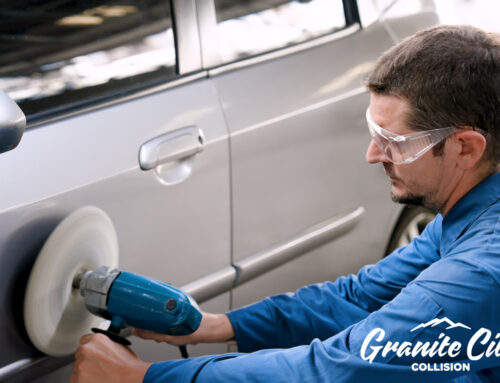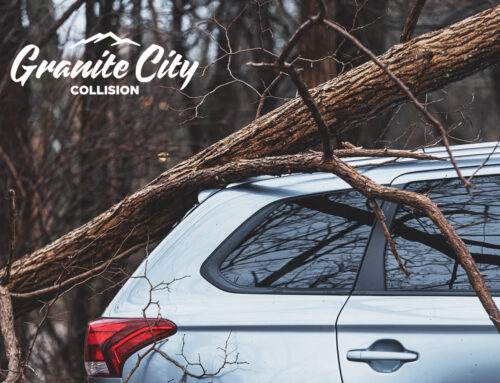In only three days time, five months’ worth of rain fell on many of our North Carolina communities, causing incredible damage, such as deadly landslides, long-term power outages, water shortages, and washed-out roads. Beautifully kept lawns, small-town intersections, and grocery store parking lots were turned upside down, leaving a post-apocalyptic view of these picturesque American images. So where are we now: are people still trapped? Are we making progress? And, what specifically can be done to help?
According to an article from ABC News, Asheville and the surrounding areas (Buncombe County) are 90% through being searched for storm victims. K-9 units are being used “as they search piles of debris for victims in the search and recovery operation. Fourteen urban search and rescue teams, including eight federal, are actively searching the area, officials said.”
The article also states that around 90% of the roads are open to emergency vehicles and that the Army Corps of Engineers “is helping to work on the damaged water infrastructure along with 160 city water employees in Asheville, and four contractors, according to officials.”
Progress is being made, but there’s still so much to be done. One of the issues slowing relief is that even before Helene hit areas like Asheville, it was difficult to get emergency vehicles and supplies to people living in certain (mountainous) areas. So imagine how much worse it became after the storm. This is one of the reasons so many people are still living in shelters–even if their house is still standing, they can’t get to it.
How to Get Help: Emergency Vehicle Insurance Claims
If you know someone, or if you are someone who had vehicle damage due to the storm there is something called Other Needs Assistance, a FEMA-based program designed to help those in need of vehicle repair after storms hit such as Helene, that can help. This program covers repairs with a minimum amount of $250 and a maximum of $4,000, which could be quite helpful. If the vehicle has already been repaired, receipts are all that’s needed for authorization; if the vehicle is completely replaced, up to $4,000 can be given if the proper documentation is provided. Here are the specifics:
- The applicant must own the damaged vehicle–or a co-applicant who can prove ownership through registration.
- The damaged vehicle must have been registered with the state at the time of the disaster.
- The vehicle has to meet the minimum state requirements for liability insurance (at the very least).
- If the applicant owns two vehicles, and one is undamaged, he or she will not be able to benefit from this program, unless the second vehicle is proven to be used for work, school, or other essential purposes only.
- The applicant must be able to verify that the vehicle sustained damage due to Hurricane Helene (and not another natural disaster or an unnatural circumstance).
If the damaged vehicle is not included in a home inspection, there are a few specific items that must be submitted to determine if FEMA will be able to help repair or replace it. Here is a list of what may be needed:
- A copy of a valid registration (at least valid at the time of the disaster).
- A brief description of all the vehicles owned and the damage caused by the storm.
- An estimate of vehicle repair costs from a certified mechanic–and a statement from the mechanic explaining that the storm is what caused the damage to the vehicle.
- The name of the mechanic, as well as the address, telephone number, and name of the company.
- A copy of the vehicle’s insurance policy and the insurance statement.
How to Help
There are numerous organizations supporting those in need across North Carolina due to Storm Helene. These groups of volunteers are helping to provide supplies, assisting with cleanup, and helping to disseminate food and water. Here are some of the organizations you can donate to or volunteer for if you would like to help:
- The Salvation Army–The S.A. is helping storm victims by handing out necessities like food, water, self-care, and other critical supplies to both residents and rescue workers.
- Samaritan’s Purse–S. Purse is helping to mobilize rescue workers and the equipment volunteers are using to provide emergency aid. This organization usually stays after all the cleanup is done to help rebuild and restore homes for those still in need.
- Baptists on Mission–This organization is providing feeding units and recovery sites for survivors, and they are desperately in need of volunteers for food and water distribution, to help with removing waste and debris, etc.
- NCDA&CS Donation Sites–This state extension is made of several of North Carolina’s Farmer’s Markets that are operating as drop-off locations with basic supplies for those in need.
- North Carolina Disaster Relief Fund–Donating here will help to meet the needs of hurricane victims. Supplies such as food and water, cleaning tools, and other emergency supplies are all provided through the NC Relief Fund. Everything donated here goes directly to those impacted by the storm.
- The American Red Cross–The Red Cross works directly with those impacted by the storm in Western North Carolina by providing the necessities and more. You can visit their site or you can simply call 1-800-733-2767, or you can text the word “Helene” to 90999 (for those who would like to request assistance).
Stay Informed
As cleanup and help continue to be provided for those in need due to Hurricane Helene, we still don’t know the scope of the devastation incurred. As we hope for the best, we have to be prepared for the worst and the best way to do this is by staying informed and helping by donating your time and/or supplies as much as possible. Here are a few great websites to help keep you informed of the current status of cleanup efforts and to offer accurate information on what is most needed:
Here, you can get up-to-date answers to common questions about which areas are still in most need and how you can help them.
Unfortunately, there have been plenty of false reports of misinformation online and even on the news regarding governmental and volunteer help. This site does a wonderful job of sifting through the false claims by utilizing trusted sources of information in order to dispel the spread of unverified rumors.
Get real-time information on road closures and statewide traffic status through this website. You can also get estimates on road repair times, so you know which areas are open and when those that are closed might be available for travel again.
The devastation caused by Hurricane Helene has been incredible, and we are continuing to find more areas in need, and more families who have lost their homes. But, thanks to the many volunteer organizations and government assistance, we are making headway.






